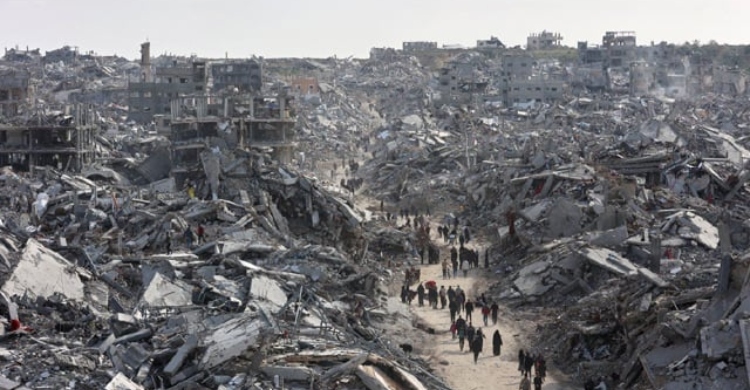UN Security Council votes for Trump’s Gaza plan


The UN Security Council voted Monday in favor of a US-drafted resolution bolstering Donald Trump’s Gaza peace plan that includes the deployment of an international force and a path to a future Palestinian state.
There were 13 votes in favor of the text, which US President Trump claimed would lead to “further Peace all over the World,” with only Russia and China abstaining -- but no vetoes.
Trump posted on social media that the vote “acknowledging and endorsing the BOARD OF PEACE, which will be chaired by me...will go down as one of the biggest approvals in the History of the United Nations, (and) will lead to further Peace all over the World.”
US ambassador to the UN Mike Waltz said after the vote that “today’s resolution represents another significant step that will enable Gaza to prosper and an environment that will allow Israel to live in security.”
But Hamas, which is excluded by the resolution from any governance role in Gaza, said the resolution did not meet Palestinians’ “political and humanitarian demands and rights.”
The text, which was revised several times as a result of high-stakes negotiations, “endorses” the US president’s plan, which allowed for a fragile ceasefire between Israel and Hamas to take hold on October 10 in the war-wracked Palestinian territory.
The Gaza Strip has been largely reduced to rubble after two years of fighting, sparked by Hamas’s attack on Israel on October 7, 2023.
The peace plan authorizes the creation of an International Stabilisation Force (ISF) that would work with Israel and Egypt and newly trained Palestinian police to help secure border areas and demilitarize the Gaza Strip.
The ISF is mandated to work on the “permanent decommissioning of weapons from non-state armed groups,” protecting civilians and securing humanitarian aid corridors.
Palestinian statehood pathway
It also authorises the formation of a “Board of Peace,” a transitional governing body for Gaza -- which Trump would theoretically chair -- with a mandate running until the end of 2027.
In convoluted language, the resolution does mention a possible future Palestinian state.
Once the Palestinian Authority has carried out requested reforms and the rebuilding of Gaza is underway, “the conditions may finally be in place for a credible pathway to Palestinian self-determination and statehood,” the text says.
That eventuality has been firmly rejected by Israel.
The resolution also calls for the resumption of humanitarian aid deliveries at scale through the UN, ICRC and Red Crescent.
“We must also substantially step up our work to support the UN humanitarian effort. That requires opening all crossings and ensuring that aid agencies and international NGOs can operate without obstruction,” said a British ambassador to the UN, James Kariuki.
Israeli ambassador to the UN Danny Danon said ahead of the vote that the resolution would “make sure that Hamas will not pose a threat against Israel anymore.”
Veto-wielding Russia circulated a competing draft, saying the US document does not go far enough towards backing the creation of a Palestinian state.
Moscow’s text, seen by AFP, asked the Council to express its “unwavering commitment to the vision of the two-state solution.”
It would not have authorised a Board of Peace or the deployment of an international force for the time being, instead asking UN Secretary-General Antonio Guterres to offer “options” on those issues.
“Security Council members were, in practice, not given the time to do the work in good faith,” Moscow’s ambassador Vasily Nebenzya said.
“The US document is yet another pig in a poke. In essence, the Council is giving its blessing to a US initiative on the basis of Washington’s promises, giving complete control over the Gaza strip to the Board of Peace.”
The US won the backing of several Arab and Muslim-majority nations, publishing a joint statement of support for the text signed by Qatar, Egypt, the United Arab Emirates, Saudi Arabia, Indonesia, Pakistan, Jordan, and Turkey.
